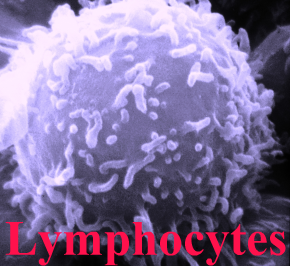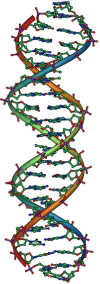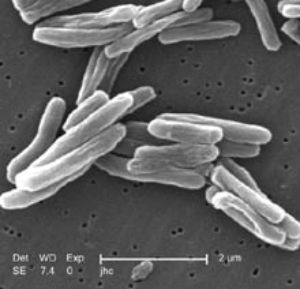Causes
Several reasons have been proposed to explain the underlying reasons for damage to the adrenal cortex, this includes:
Auto-immune Addison’s disease
Your immune system is your body’s defence mechanism against infections and diseases such as bacteria, viruses and other ‘germs’. This system produces antibodies in an attempt to attack the underlying cause of the illness. However in autoimmune conditions, your immune system starts producing antibodies that attack your own tissues/organs.
 About 70% cases of Addison's disease are due to ‘auto-immune’ disease. In autoimmune Addison’s diseases, your immune system makes antibodies, which attach to cells in the adrenal cortex. These destroy the cells, which make cortisol and aldosterone, once these levels start to decrease the individual will experience the symptoms associated with Addison’s disease. The adrenal medulla is not affected (so the individual is still capable of make adrenaline and noradrenaline). It has been proposed that something triggers the immune system to make these antibodies. However research is still being conducted to determine what that 'something' could potentially be.
About 70% cases of Addison's disease are due to ‘auto-immune’ disease. In autoimmune Addison’s diseases, your immune system makes antibodies, which attach to cells in the adrenal cortex. These destroy the cells, which make cortisol and aldosterone, once these levels start to decrease the individual will experience the symptoms associated with Addison’s disease. The adrenal medulla is not affected (so the individual is still capable of make adrenaline and noradrenaline). It has been proposed that something triggers the immune system to make these antibodies. However research is still being conducted to determine what that 'something' could potentially be.
If you have autoimmune Addison’s disease you have a higher likelihood of other autoimmune diseases developing such as thyroid problems, vitiligo and pernicious anaemia.
Adapted image of a lymphocyte modified image courtesy of Wikimedia, these images are in public domain and thus free of any copy right restrictions.
Genetics

Researchers have demonstrated that individuals with a particular gene are more prone to developing autoimmune conditions. This particular allele has been found in a number of people with autoimmune Addison’s disease and is also present in people with other autoimmune disorders.
Whether this gene strictly contributes to the development of Addison’s disease still remains unclear, but results have shown a strong correlation between Addison’s disease and other autoimmune conditions. Consequently those with autoimmune conditions have a higher likelihood of developing Addison’s disease at some stage.
Image of a double-stranded DNA helice courtersy of Wikimedia, these images are in public domain and thus free of any copy right restrictions.
Tuberculosis (TB)
TB (which use to be a major health problem in England), is defined as a bacterial infection, which usually affects the lungs but can also spread to other areas within the body, consequently destroying the adrenal gland causing Addison’s disease.

Scanning electron micrograph image of mycobacterium tuberculosis courtery of Wikimeia these images are in public domain and thus free of any copy right restrictions.
Other rare adrenal cases include the following:
- Infections such as those related to AIDS or fungal infections such as ringworms can sometimes affect both adrenals.
- Cancers of other parts of the body can spread and destroy the adrenal glands.
- Rare hereditary conditions associated with the adrenal glands (also known as adrenal dysgenesis), display a genetic defect within the adrenal glands, consequently the adrenal glands cannot develop properly or cannot produce hormones
- A haemorrhage: caused by very heavy bleeding into the adrenal glands.
- Amyloidosis: a disease where amyloid, a protein that is produced by cells in your bone marrow, builds up in your adrenal gland and damages them.
- Adrenalectomy: surgical removal of the adrenal glands, for example to remove a tumour.
‘Secondary’ causes of low cortisol level
This form of adrenal insufficiency is much more common than primary adrenal insufficiency. The amount of cortisol that you make in the adrenal glands is controlled by another hormone called ACTH. This is made in the pituitary gland. If you have a low level of ATCH, your adrenals make too little cortisol.
Causes of a low ACTH level include:
- Some disorders and tumours of the pituitary gland, which can cause a lack of ACTH (and other pituitary hormones).
- Long-term use of steroid medicines such as prednisolone. Steroid medicines are similar to cortisol. They are sometimes used to treat arthritis, cancer and other conditions. If you take a steroid medicine for several weeks or more, you stop making ACTH and cortisol as the steroid medicine takes over the role of cortisol. If you suddenly stop taking the steroid medication it takes a while for the pituitary and adrenal glands to get back into the normal making of ACTH and cortisol. Therefore, if you stop the medication suddenly, you are prone to quickly developing symptoms similar to an Addisonian crisis.
To form cortisol, the adrenal gland requires cholesterol, which is then converted biochemically into steroids hormones. Impaired steroidogeneis can result from interruptions in the delivery of cholesterol including abetalipoproteinemia.
